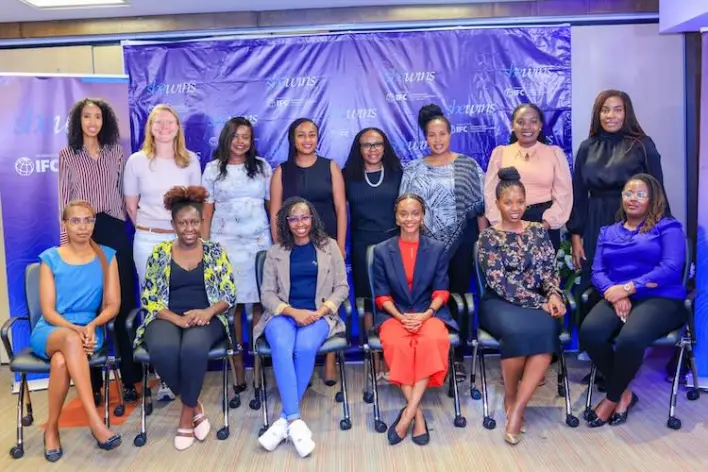As 2022 wound down, Techpoint Africa asked some African venture capitalists for themes they expected to define 2023.
One thing was common with the five VCs who shared their thoughts with us — 2023 was going to be a tough year.
That prediction or expectation, if you will, was validated. The most obvious indicator was the sharp drop in startup funding. African startups raised $4.18 billion in 2022, but only mustered $2.27 billion in 2023, according to Intelpoint.
Startups on the continent had generally weathered the funding decline that began in 2022, but with most of its funding coming from regions affected by the slowdown, it was only a matter of time before its effects were felt here.
A direct consequence of the difficulty experienced while raising funds was that some startups shut down. At least 12 startups shut their doors in 2023. Prominent examples include Lazerpay, 54gene, and Sendy.
Startups that didn’t shut down laid off employees, with behemoths like Chipper Cash and Paystack affected. At least 4,000 employees were laid off from African startups, most of which were venture-backed.
Fortunately, it wasn't all gloom. M-KOPA and MNT-Halan raised mega rounds with the latter becoming the continent’s newest unicorn. However, both startups accounted for a significant portion of the year’s funding, at $650 million.
Elsewhere, new funds were launched or raised, suggesting that investors remained interested in backing African founders.
Norrsken22 raised $205 million and Catalyst Fund hit the first close of a $40 million fund. Sony Ventures, Verod Capital, Enza Capital, and Aduna Capital also announced new funds.

Join over 3,000 founders and investors
Give it a try, you can unsubscribe anytime. Privacy Policy.
There were also a few acquisitions as startups sought to extend their lifetimes and capture more value. Instadeep’s acquisition in February was the largest the ecosystem had seen in years.
As 2024 begins, we decided to ask some VCs for their expectations for the year. Maelis Carraro, Managing Partner of Catalyst Fund; Benoit Delestre, Managing Partner at Saviu Ventures; and Andreata Muforo, Partner at TLcom, share their expectations for 2024 along with advice for founders.
Predictions for 2024 and trends to monitor

The consensus among many players in the African tech ecosystem is that 2023 was perhaps the toughest year for startups and investors. However, Muforo argues that there were positives.
Scarce resources forced investors and founders to begin building sustainable companies. Slashed valuations also mean that this is a good time to invest in startups, as investors have a better chance of reaping immense rewards.
More Africa-focused funds
In 2024, Muforo expects that more Africa-focused funds will be launched. Much of the funding that African startups receive comes from investment firms based in Europe and North America. A smaller portion comes from funds headquartered in Asia.
While that means startups will have more money, it comes with some problems. Funds that invest predominantly in developed markets naturally have deeper pockets, but they are also less likely to have an African team.
The combination of deep pockets and ignorance of local realities often results in bloated valuations and strategies that do not mirror the peculiarities of building a startup in Africa. The launch of Africa-focused VC firms provides much-needed balance and avenues for collaboration with foreign investors.
Climate tech superiority
One of the more interesting developments in the past year has been the rise of climate tech as a major investment theme. Climate tech emerged as the second most funded sector in 2022, behind fintech. Carraro, whose firm, Catalyst Fund, backs climate tech startups, expects a continuation.
Equator, Novastar, and Catalyst Fund all announced plans to raise funds, primarily targeting startups building climate tech solutions. Catalyst Fund and Novastar have hit the first close of their respective funds, while AfricaGoGreen Fund (AGGF) and the Energy Entrepreneurs Growth Fund (EEGF) remain keen on driving investment in the space.
Carraro expects more diversity in terms of the climate solutions that will be funded, noting that funding for the sector is being aided by political and economic imperatives.
“I think there’s a growing realisation that as the years go by, we’re not going to stay below 1.5°, and that will have severe consequences across the continent. Africa contributes the least to the issue but will suffer the greatest impact, so there’s a need to prepare to build resilience among communities and deal with some of the changes brought by climate change,” she said.
However, neither Carraro nor Delestre expects the sector to topple fintech anytime, as the gaping holes in most countries’ financial systems represent untapped opportunities. Both also expect healthtech startups to pick up more funding in the new year.
B2B is where the money’s at
African startups have to compete with essential products like food for market share. Households in Nigeria, for example, spend 85% of their income on food.
Muforo expects to see more startups go the B2B route, as businesses naturally have more money to spend compared to individuals. However, she expects that startups that provide services that individuals can’t easily cut off could survive.
Continued emphasis on frugality
In the heady days of 2021, when startups seemed to raise money on a whim, founders and investors threw caution to the wind. Concepts like frugality and profitability were pushed to the back burner, but as the funding crunch bites, both concepts have seen renewed acceptance.
Advice for founders
Ahead of 2023, Eric Osiakwan, Managing Partner at Chanzo Capital predicted that “2023 will separate the men from the boys in the sense that we’re going to see companies that have stronger fundamentals being able to ride the storm and those that do not fall out or pivot.”
That is expected to continue in 2024, and Carraro and Delestre shared some tips that can help founders during the year.
Think of alternative funding sources
It’s no secret that startups have had a difficult time raising capital from venture capitalists in the last year, but that is not the only funding source available to startups. Just as venture capital has slowed down, there has been a rise in alternative funding sources.
A notable option is debt financing, which has seen a steady rise since 2021 and accounted for more than 30% of total capital raised in 2023. The biggest beneficiaries have been cleantech and fintech startups.
Indeed, some of the largest funding rounds last year were either completely debt rounds or heavily comprised of debt rounds, and Carraro advises more startups to consider that option.
Continue to be obsessed with customers
Regardless of how hard the funding and macroeconomic environments get, some startups will thrive. Beyond those with favourable unit economics, Carraro expects startups with a strong customer obsession to grow.
Startups that place a strong emphasis on solving customers' pain points will be able to build customer loyalty, which could help them reduce churn and grow organically.
Think about exits from day one
The goal of venture capital investments is an exit through a public listing, an executive buyout, or an exit to another investor. However, Africa's budding tech ecosystem makes this harder to achieve.
Although some startups have listed on public exchanges, they have often done that outside the continent. Countries like Nigeria are encouraging startups to list locally, but that hasn’t happened yet.
Carraro advises founders to think of the exit opportunities available to them from day one, as it makes them more attractive to investors.
Delestre does not expressly advise founders to think about exits from the get-go, but he points out that founders and investors must identify potential exit opportunities early.
“I’m talking about exits because in Africa it is difficult to exit. I’m in the M&A phase of my fund. I need to return cash to my investors, and I'm spending 80% of my time working with the entrepreneurs from fund 1 to exit,” he said.
What do you think of these tips and expectations? Drop me an email here.





















